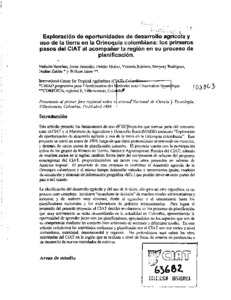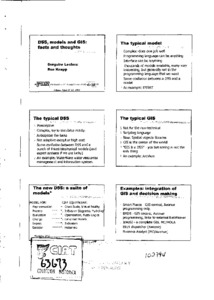Mission
To reduce hunger and poverty, and improve human nutrition in the tropics through research aimed at increasing the eco-efficiency of agriculture.
People
CIAT’s staff includes about 200 scientists. Supported by a wide array of donors, the Center collaborates with hundreds of partners to conduct high-quality research and translate the results into development impact. A Board of Trustees provides oversight of CIAT’s research and financial management.
Values
- Shared organizational ethic
- We respect each other, our partners, and the people who benefit from our work. We act with honesty, integrity, transparency, and environmental responsibility in all of our joint endeavors.
- Learning through partnerships
- We work efficiently and pragmatically together and with partners. Considering our diversity to be a key asset, we adapt readily to change and strive to improve our performance through continuous learning.
- Innovation for impact
- We develop innovative solutions to important challenges in tropical agriculture, resulting in major benefits for the people who support, participate in, and profit from our work.
Members:
Resources
Displaying 526 - 530 of 958Exploración de oportunidades de desarrollo agrícola y uso de la tierra en la Orinoquia colombiana : Los primeros pasos del CIAT al acompañar la región en su proceso de planificación
Distribution of water-stable aggregates and aggregating agents in oxisols of the Brazilian cerrados
The effects of land-use change on the structure of Oxisols in the Brazilian savannas (also known as the Cerrados) are still insufficiently understood. We therefore studied loamy and clayey Oxisols under natural savanna, crop, pasture, and reforestation to (1) quantify management-induced changes in the quantity of water-stable aggregates, (2) identify the main aggregating agents, and (3) correlate aggregation with changes in pore-size distribution. Clayey soils showed a significantly higher macroaggregation than did loamy soils.




